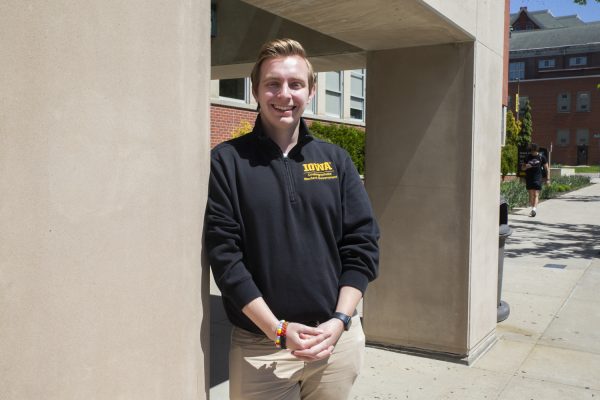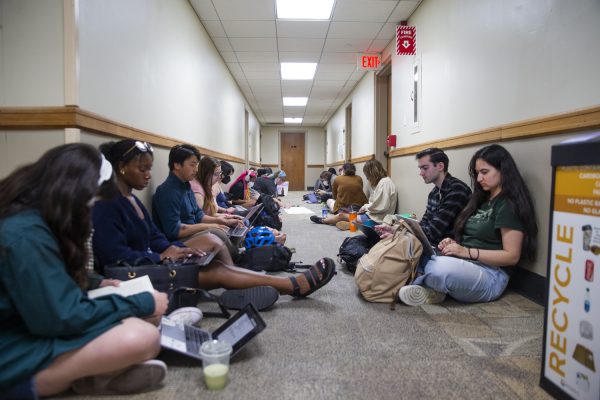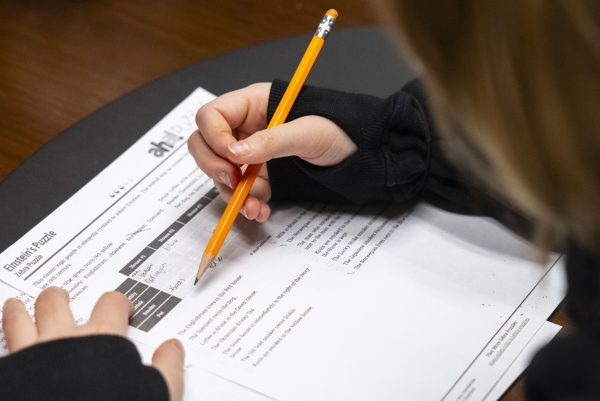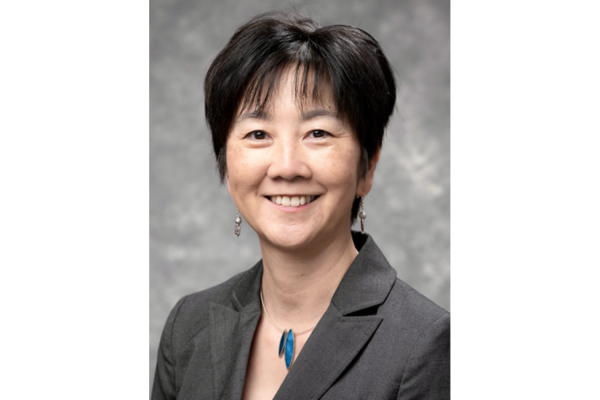UI hires mental health counselors in response to student distress
Despite a return to in-person learning, some students are feeling burnt out. The UI has increased its amount of mental health resources in response.
University of Iowa Counseling Services Director Barry Schreier is seen in his office at the Westlawn Building on December 12, 2019. Schreier recently was awarded the Association of University and College Counseling Center’s President’s Award for Meritorious Service in the National Field of Campus Mental Health.
December 9, 2021
University of Iowa staff and students are feeling some mental distress on their academic success nearing the end of the semester.
University Counseling Services has become a prominent resource in helping students deal with the stresses they have experienced over the past year.
Barry Schreier, the director of University Counseling Services, said burnout stems from feelings of helplessness and simply running out of resilience for challenges. He said one of the primary sources for these feelings is the pandemic, and no one has escaped the impacts of the pandemic.
“Things are more taxing than they have been in past years,” Schreier said. “We’re certainly aware that there is a bottomless need for our resources and we simply, even on a good day, are a finite resource. We want to help every student who comes knocking at our door, [but] we realize, given our finite resources, we’re simply not able to do that.”
Every year, Schreier said, the UI collects student data through the National College Health Assessment, which looks at mental health among other things.
The survey asks students to rate feelings of psychological distress and analyze whether mental health distresses such as anxiety and depression have an effect on their academics. Schreier said nearly 50 percent of students are reporting feeling some distress or some effects of mental distress on their academic success.
“In terms of things that could be symptoms of burnout, students are saying, yes, they are feeling a lot of those symptoms,” Schreier said. “It’s not everybody, but it’s a decent proportion of the campus.”
The survey also asks questions about flourishing and resilience, Schreier said, and focuses on questions such as if students are feeling engaged in their daily lives, optimistic about their future, and respected by others.
He said these questions are endorsed by more than 70 percent of students.
“The bottom line is, students are endorsing that things are a struggle right now, while at the same saying, ‘I’m still doing okay,’” Schreier said. “I think that’s an important thing to keep in mind. Yes, burnout probably is a thing on our campus and we’re all still here making this thing work.”
Sarah Stanley, a UI third-year pre-med student, said burnout hit her after midterms this fall, and afterward, she just checked out mentally. She acknowledges feelings of burnout were worse last year, during the peak of the pandemic.
“When you have Zoom classes, you’re sitting in the same place for most of the day,” Stanley said. “When you’re in person, you get to get up and you get to go out and see people. It just keeps you moving and keeps it varying from day-to-day a little bit more.”
She said she has noticed her friends and even her professors experiencing burnout. In her research lab, Stanley said members of her lab groups have expressed feelings of exhaustion during the hours-long lab sessions.
Stanley said she manages burnout by doing little things to treat herself, which often includes rewarding herself with coffee after studying or just simply taking time to meet up with her friends.
“I have so much satisfaction when I can cross something off the schedule,” Stanley said. “That’s something really big for me, is just being like, ‘I can cross this off for the day.’”
UI President Barbara Wilson said in an interview with The Daily Iowan on Thursday that the university has hired more mental health counselors this year and instituted the 24-hour UI Support and Crisis Line.
“Every university is challenged right now to figure out how to manage the mental health and wellness needs of students,” Wilson said. “Do we have it figured out? No. Are we doing better than we were six months ago? I hope so.”
Wilson said these mental health resources provide UI students with professional help from counselors who understand the issues students face.
UI fourth-year student Joel Jackson said he has felt burnt out since a few weeks before fall break and attributes these feelings to dealing with schoolwork and working at Lowe’s. Jackson said feelings of burnout are also the result of the restrictions of the pandemic.
“It was just all bad news and no fun time,” Jackson said. “The pandemic has definitely contributed [to feelings of burnout].”
Jackson’s classes have almost entirely shifted back to in-person instruction this semester. He said he is torn about in-person classes because they can be a lot more stressful.
“There have been some moments during this semester where I’m like, ‘I’m not prepared for it, I’m way behind, and I hope they don’t call on me,’” Jackson said. “It’s better for my education, but when you get bogged down with stuff and get behind, it also worsens mental health.”
He said to manage burnout, he creates a physical separation between school and home, leaving schoolwork on campus, and playing video games or watching TV shows stress-free after school.
“I like to think of it as a job since I commute from my apartment to school every day,” Jackson said. “What I try to do is do all of my homework and studying at school so that way when I come home, I can just relax. Home is the relaxed place, not the workplace.”















